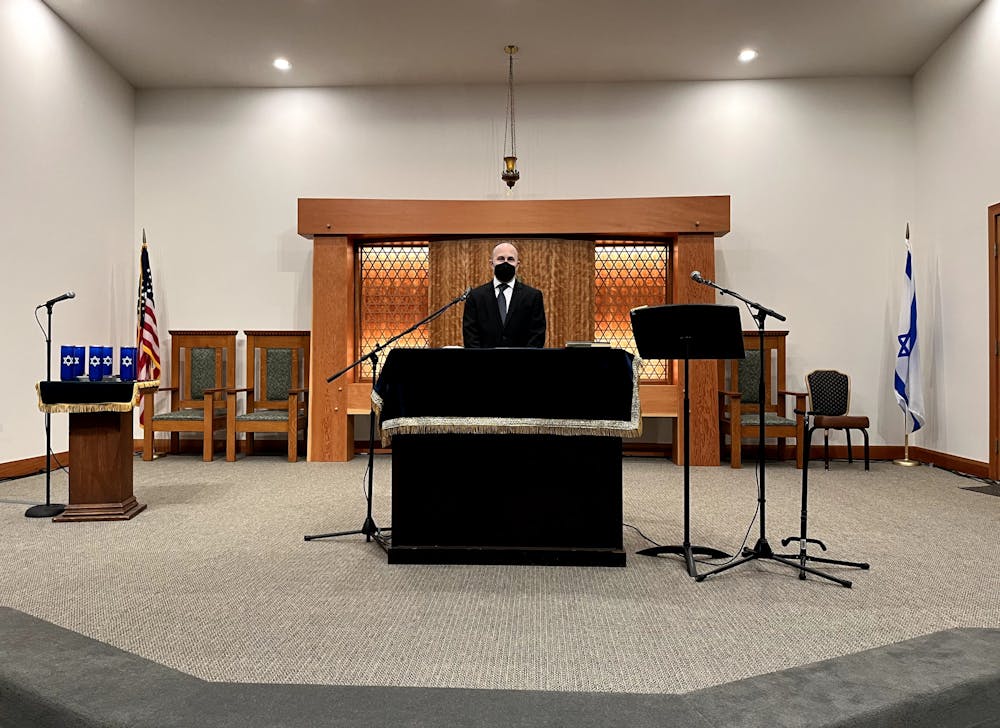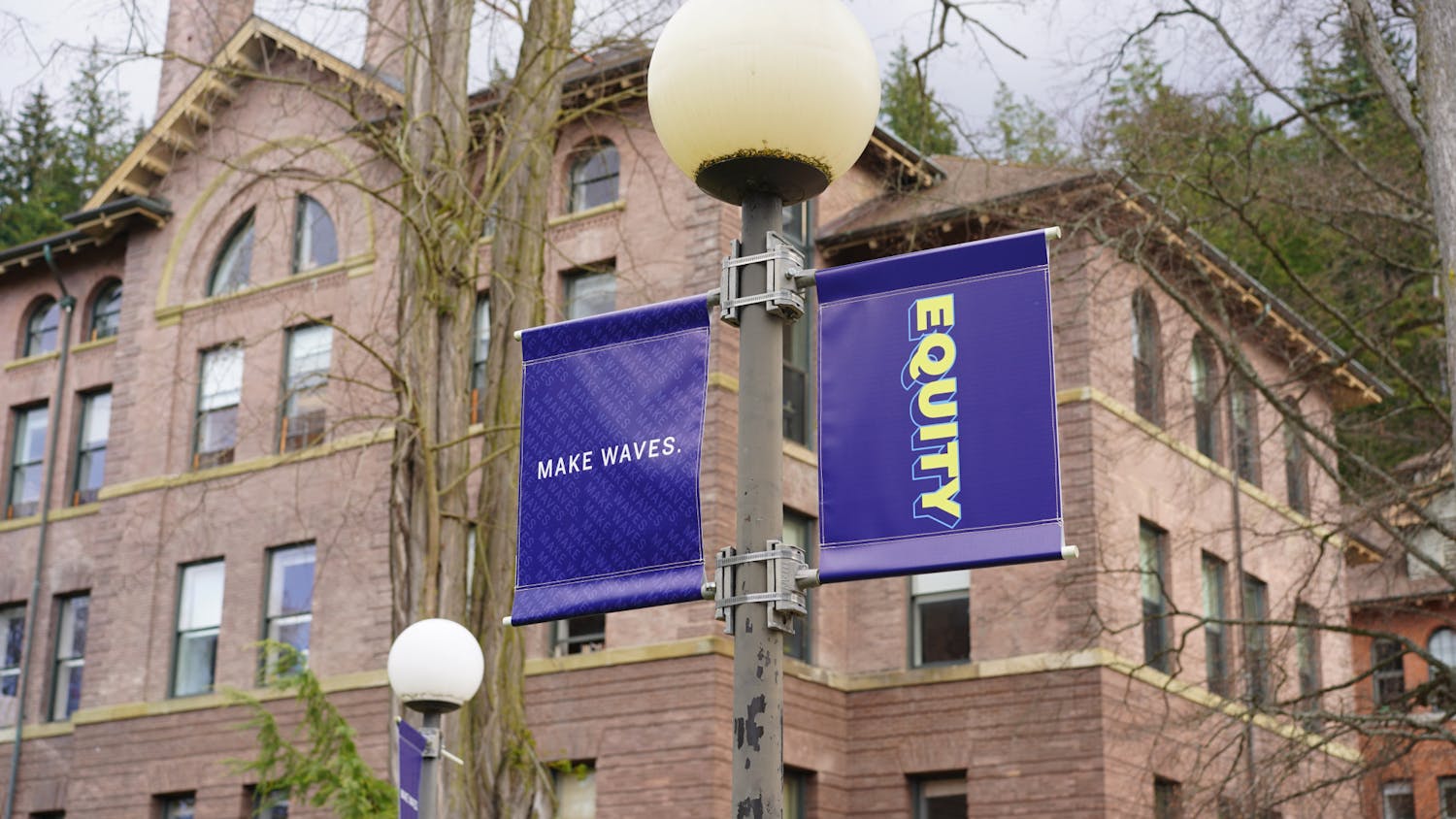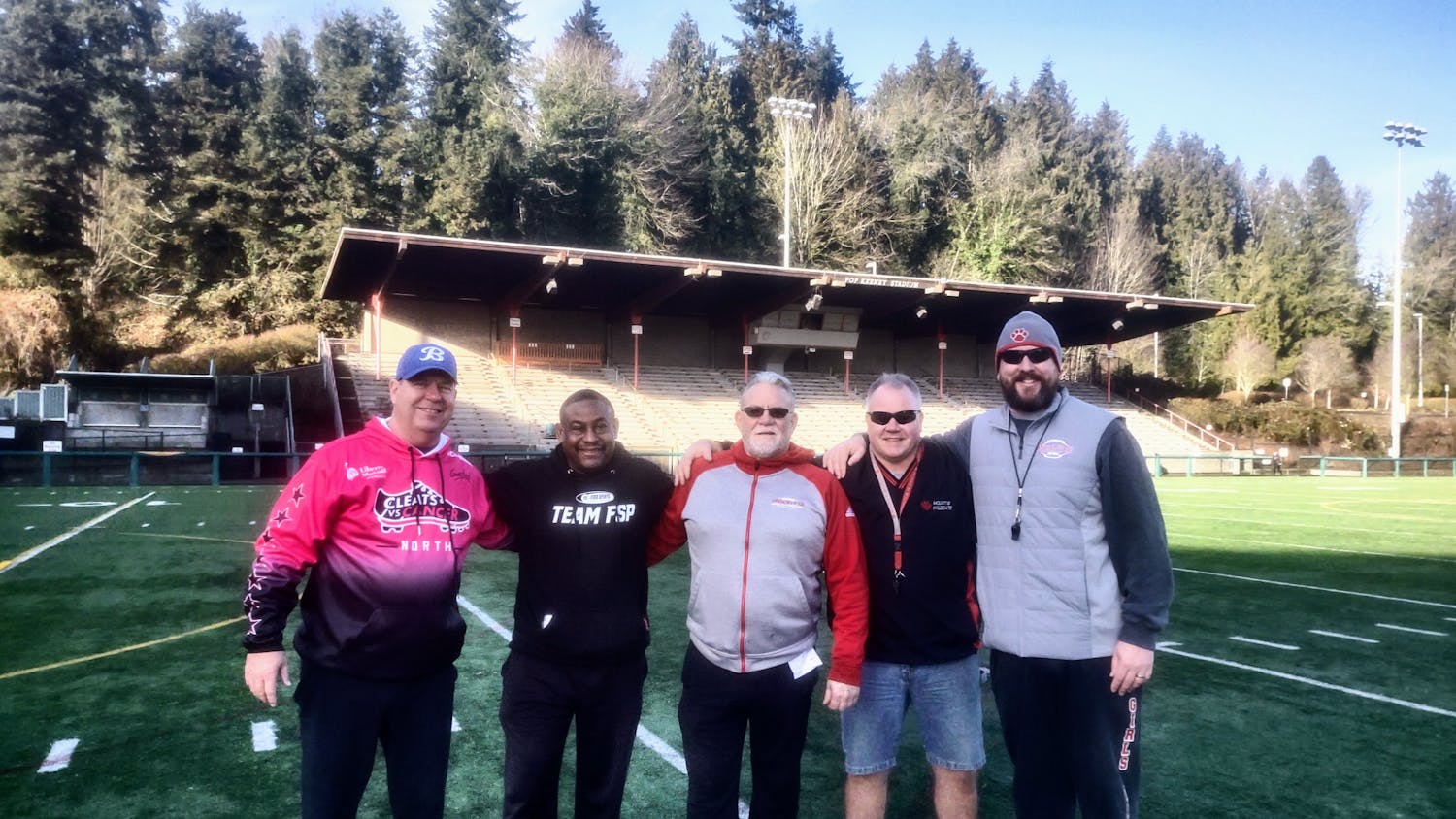Yom HaShoah, or Holocaust Remembrance Day, is a time when Jewish communities come together to reflect on acts of resistance and resilience. Congregation Beth Israel, a synagogue in Bellingham, held its Yom HaShoah service on April 17.
In 1951, the Knesset, or Israeli parliament, passed a bill designating the twenty-seventh day of Nissan — the first month of the Jewish calendar — as Holocaust and Ghetto Uprising Remembrance Day. From 1933 to 1945, over six million Jews were murdered by Nazis in the Holocaust, sometimes called the Shoah or “catastrophe.”
Sarah Zarrow, an associate professor of history and an endowed chair of Jewish history at Western Washington University, said Yom HaShoah is observed worldwide. The official day was established in Israel to remember the victims of the Holocaust, to reflect on the Holocaust and to think about Jewish resistance to the Holocaust and to the Nazis.
Zarrow said acts of resistance to antisemitism during the Holocaust included running secret soup kitchens in the ghettos and teaching in underground schools.
The sense of community in Bellingham is here today amidst recent antisemitic acts. While some may say antisemitism is not around, it is unarguably relevant.
Every year, the eighth graders at Beth Israel’s Kesher Center for Jewish Learning study the Holocaust, and their hard work culminates in the service for Yom HaShoah.
Ray Wolpow, who is the namesake of the Ray Wolpow Institute at Western, formerly taught the eighth graders at Beth Israel and came back this year to help with instruction.
“On Yom HaShoah, I remember that a terrible thing happened to six million Jews, but also to Roma, Sinti, LGBTQ people, to people of color, and I want to first honor the memory of those people that passed. But I want to also make sure that those of us who are alive now do everything we can to prevent genocide from reoccurring,” Wolpow said.
His work with the institute, which facilitates Holocaust and genocide studies at Western, connected him to several survivors of the Shoah who told him their stories.
“When I teach about this, I take my students through some of those stories so they can show them pictures of those people so that they know they are descendants. They are still living with the trauma that is generational,” Wolpow said.
While Yom HaShoah is specifically about remembering those lost to the Holocaust, it should be noted that Jewish people are more than the trauma that some of their ancestors faced. Rabbi Joshua Samuels at Beth Israel said he enjoys leading the holiday services, especially Purim, which he said is about celebrating joy.
“A lot of these holidays, there’s set customs and rituals that people follow, but then we’re also given freedom to create our own or to borrow from other Jewish communities,” Samuels said.
In Poland, Samuels said, some Jews will put water on the ground and everyone will march around and over it to symbolize walking through the split sea. In North African countries, they take leeks or scallions and whip each other playfully.
“I’ll have children come up when I’m leading Passover Seder and they’ll each have scallions and I encourage them to hit me with them,” Samuels said.
He said these rituals bring the story to life.
“You’re learning about the story, but then you’re also learning about world Jewry, which is cool too,” Samuels said.
He loves passing these traditions on to the children he teaches. This passion is shown when he is officiating at a bar or bat mitzvah.
“[It] is a very proud moment for me to know that their family and themselves have been navigating the Jewish journey for a long time, and it kind of culminates with this,” Samuels said. “It’s quite special seeing them stand up there in front of a whole community and lead.”
Tahlia Somers, a student at Mount Vernon High School whose brother performed at the Yom HaShoah service, said going to synagogue gives them a sense of community. They have attended since they were 4 or 5 years old.
“I have a lot of really good friends there that I’ve made connections and grown with for several years,” Tahlia said.
Tahlia said that in Mount Vernon, where they live, there weren’t many places Jewish people could come together to celebrate their heritage and religion, so they found that community at Congregation Beth Israel.
“It’s really nice to have a community you can feel loved and accepted [in],” Tahlia said.
Their dad, Perry Somers, also goes to Congregation Beth Israel. When Samuels first heard that Perry’s dad had died, Samuels was there to help.
“When he first came over here, he [said] that the Jewish community are like the sequoias. They basically surround you with the support you need,” Perry said.
In Jewish culture, the sequoia is an important analogy. It is known for its longevity and has roots that spread wide enough to reach its neighbors. The roots of neighboring sequoias twist around each other, providing each tree with support that lasts throughout the years.
“We’re always here for each other,” Perry said.
Tahlia said they often look back on one specific moment from one of their trips to the Union of Reform Judaism summer camp in Arlington, Washington.
“I think it was a going-away song, because camp was ending, and we had our arms around each other … and I felt really proud to be Jewish in that moment, because, [in] our past … we’ve always dealt with antisemitism … and just that we can find this own little section of the world that’s beautiful for us, it just made me feel good,” Tahlia said.
Perry also grew up going to the URJ summer camps and made good friends there, some of whom he still works with today.
“There’s always a beautiful ceremony, song or service for everything. We say, ‘There’s a blessing for when the sun rises, there’s a blessing for when the sun sets, there’s a blessing for waking up and being alive every day,’ and it really becomes important,” Perry said.
Cordelia Longo (they/them) is a senior at Western majoring in political science. In their free time, you can find them listening to Taylor Swift and asking to pet strangers' dogs.






